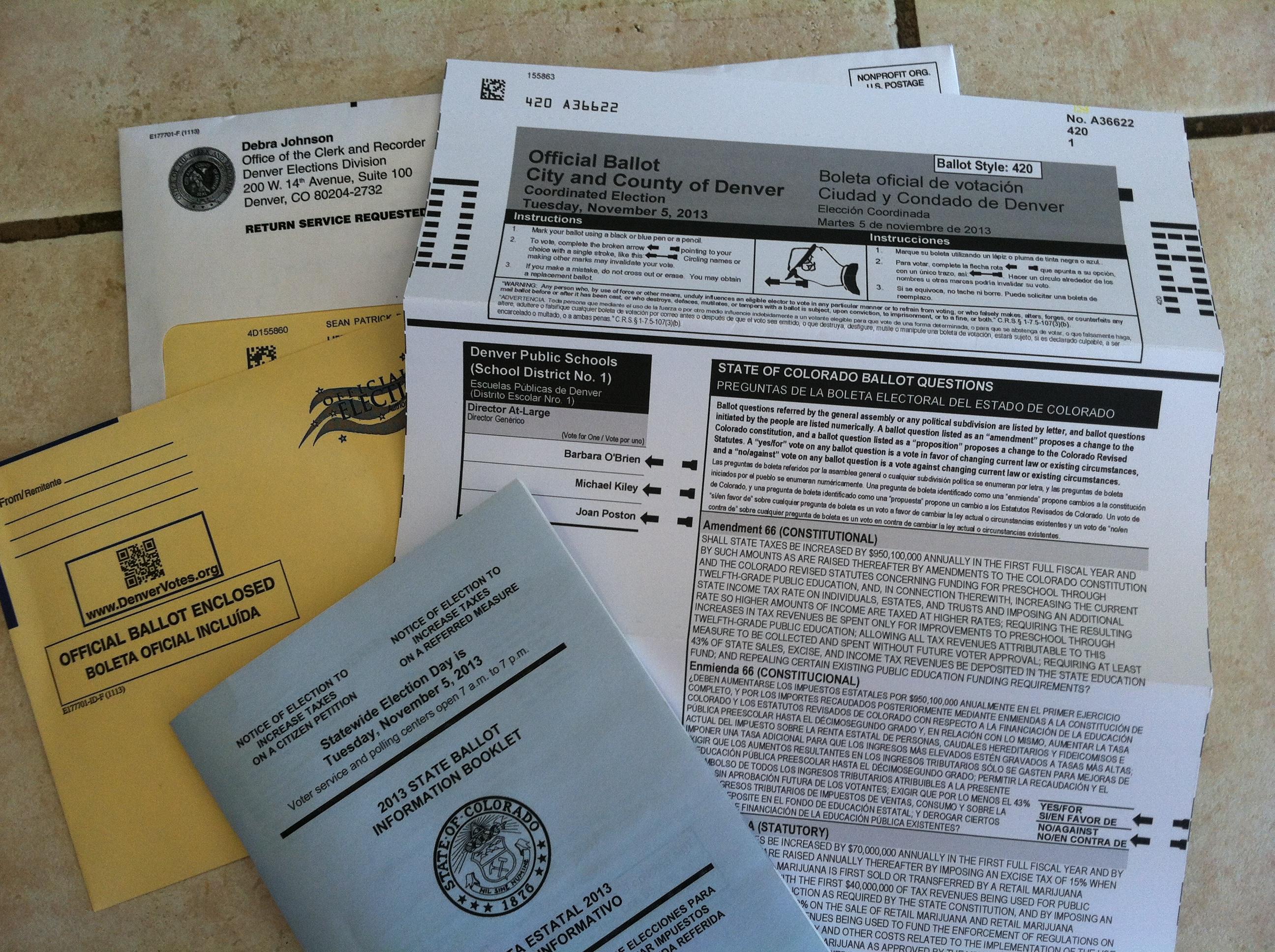
The Colorado Title Board on Wednesday approved key language for a possible 2020 ballot initiative that would repeal a highly consequential part of the state constitution.
But which part, exactly? If you ask repeal proponents, it’s Article X, Section 20. If you ask repeal opponents, it’s the Taxpayer’s Bill of Rights, or TABOR. How the ballot question is presented to voters is just the latest high-stakes skirmish in a long war over TABOR, a controversial constitutional amendment passed in 1992 that’s limited government growth in the state.
Both sides presented arguments to the title board, a three-member panel with representatives from the Secretary of State’s office, the state Attorney General and the Office of Legislative Legal Services, that decides if ballot measures meet all requirements and how they should appear on the ballot.
The liberal-leaning Colorado Fiscal Institute is backing the repeal effort, which won a significant victory at the Colorado State Supreme Court last month allowing it to inch closer to the 2020 ballot. Carol Hedges, the group’s executive director, said using the specific term, “Article X, Section 20,” is the most clear, neutral way possible to refer to the amendment.
"We need to keep a simple title that allows voters to know what they are voting on. And it's very clear from a title that says repeal Article X, Section 20, what is happening,” Hedges said after the hearing. “Any voter that doesn't know what Article X, Section 20 is, will go to the Colorado Constitution and learn what it's about.”
Natalie Menten, a TABOR supporter and an RTD board director, said the repeal proponent’s suggested title was misleading. “99.5 percent of the people out there are not going to have any clue what’s being referenced,” she told the board.
Menten and other TABOR supporters suggested their own language that briefly mentions much of what TABOR, a sprawling 1,800-word document, actually does — including placing fiscal limits on all levels of government and requiring voter approval for all tax increases.
In the end, the board voted 3-0 to approve a hybrid approach: “An amendment to the Colorado constitution concerning the repeal of the Taxpayer's Bill of Rights (TABOR), Article X, Section 20 of the Colorado constitution.”
“I think they probably split the baby pretty well,” Rebecca Sopkin, an attorney and board member at the conservative TABOR Foundation, observed after the meeting.
But Hedges said her group would request a rehearing from the title board, likely to happen next month. She said her group would consider another petition to the state Supreme Court if the title board doesn’t settle on a title her group is happy with.
Hedges added that she and other repeal supporters plan to speak with voters before deciding to get too much deeper into the initiative process — including the costly task of collecting more than 120,000 signatures.
The title board also determined that because the proposed initiative only repeals language from the constitution, it only needs 50 percent of the vote to pass — not 55 percent as required under Amendment 71.
The full repeal effort won’t go before voters until next year, but Coloradans will have to make a decision on TABOR later this year. The Colorado state legislature approved putting a proposal, Proposition CC, on the November 2019 ballot to allow the state to retain revenue that would otherwise be refunded.








